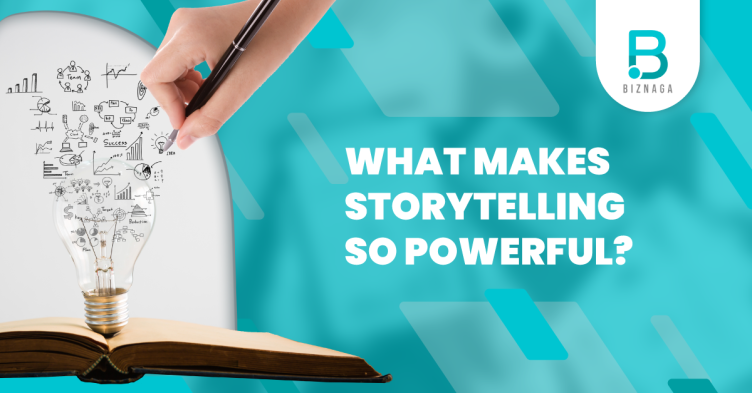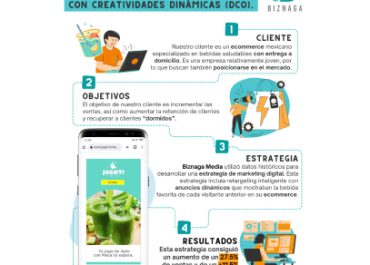Harnessing the Power of Storytelling in B2B Digital Marketing


Introduction
In today’s digital world, in which attention spans are short and competition for consumer attention is fierce, storytelling has become more critical than ever.
Storytelling is an age-old communication tool used for centuries to fascinate, educate, and influence people. From legends and myths to novels and movies, we’re always captivated by a good story.
The digital marketing world is no exception to this force. Storytelling proves to be a powerful way to connect with customers, build brand identity, and drive engagement. Our clients comment that the most effective way to engage with customers is to leave facts and boring statistics behind: just tell a story, and the rest will follow.
In this article, we’ll dive into the art of storytelling, exploring its essence and key components. We’ll also take a look at the process of crafting a compelling storytelling strategy for B2B digital marketing.
The essence of storytelling explained
When business managers first dive into the marketing world, they almost never consider training in storytelling a priority. It happened to us!
Biznaga first started with our efforts solely focused on elements of data analytics and campaign strategies. We would contact potential clients, list every one of our business features, and present outstanding data projections that showed how much we believed in the project, and how much they should believe too.
But none of them stuck. They stared at our features and facts with blank faces, as is if our numbers meant nothing to them. They heard every promised benefit without even raising an eyebrow. We didn’t get it! Why weren’t they as excited as we were?
When wanting to appeal to customers’ emotions, just using facts and figures wasn’t doing the trick. We talked about implementing innovative marketing strategies, but we were missing an essential one: storytelling.
What makes Storytelling so powerful?
From a psychological point of view, stories are the way we understand the world. They make ideas memorable by offering the reader or customer an experience, rather than just neutral information.
A good story appeals to the emotions of its audience, which allows them to feel part of the narrative and be motivated or moved by it. Research by Google, Motista and CEB identifies that 50% of B2B customers are more likely to purchase a product if they connect emotionally with a brand, so of course storytelling has become a valuable tool.
Once we incorporated narratives of Biznaga’s own experiences into our marketing campaigns, we experienced a complete change of scenario. Our features started to resonate with potential customers, and our sales increased.
Storytelling is an essential strategy for every brand. We help our clients launch campaigns with this tool, and results confirm its power in boosting brand awareness along with customer engagement, trust and loyalty.
Crucial components of effective storytelling
So, what are some crucial components that ensure your storytelling will be effective? Let’s check them out.
Narrative
You have to tell a story. This one seems almost obvious but it can easily be overlooked. In order to create a narrative, you need to include at least 3 elements: exposition, conflict and resolution. That is, your story needs to start with an initial situation, a conflict that generates a problem and a way out of this problem.
Check out the story we just told you about Biznaga, can you identify these three parts?
Interactivity
A good story interacts with its audience, prompting multiple effects on them. As we mentioned before, it demands emotional investment because it compels people to change the way they feel. Stories also influence the way the audience thinks by piquing their attention and holding their interest.
However, the most important response to a good story is action. Successful stories change the way we behave or make us take action in a certain way. This is exactly why it is so useful in marketing!
Attention-grabbing and personalization
The story you create needs to be interesting for your audience. In order to manage this, the narrative you use should include your own experience and your customer’s pains and problems. Write stories that relate to their experiences, and that are aligned to their values and priorities.
They also should be tailored to different mediums. Telling a story in an Instagram post is not the same as doing so in an email. Just as needs and concerns change across audiences, the way they consume information changes too.
Creativity and imagination
Even though a story needs to refer to relatable experiences, it has to be told in a creative way. It is simple: if it sounds like something we have heard before, we won’t listen to it. Your imagination is key!
Crafting remarkable storytelling strategies for B2B digital marketing
Now that we have explored why Storytelling is important, and what components it must include, let’s check out how to craft a remarkable story.
These are the steps you can’t miss, based on our experience.
- Define your target audience
- Choose the right channel
- Identify your brand voice
- Focus on the emotional impact
- Incorporate brand values
- Use real-life examples or customer stories
- Incorporate visuals
All these steps are essential in building a story that will transmit your message and motivate potential customers to engage with your brand.
In our conversations with business owners, they share the difficulties they face while working with storytelling, like losing sight of their brand or being unable to appeal to customers’ needs and interests. That’s why we emphasize the importance of doing this process correctly.
Fortunately, Biznaga Media offers them expert support in multiple marketing strategies, including storytelling. Our clients mention they experience new responses from their customers when working with us, and can now vouch for the power of a good story.
Takeaway
Storytelling has been around forever, and its potential has reached businesses that we never imagined. In Biznaga Media, from the perspective of B2B marketing, we recognize how powerful of a tool it can be. We help all of our clients compose and launch effective stories that connect with their customer’s emotions and build lasting relationships with them.
Don’t waste any more time! Contact us and find out how we can help your business with B2B Digital Marketing!







